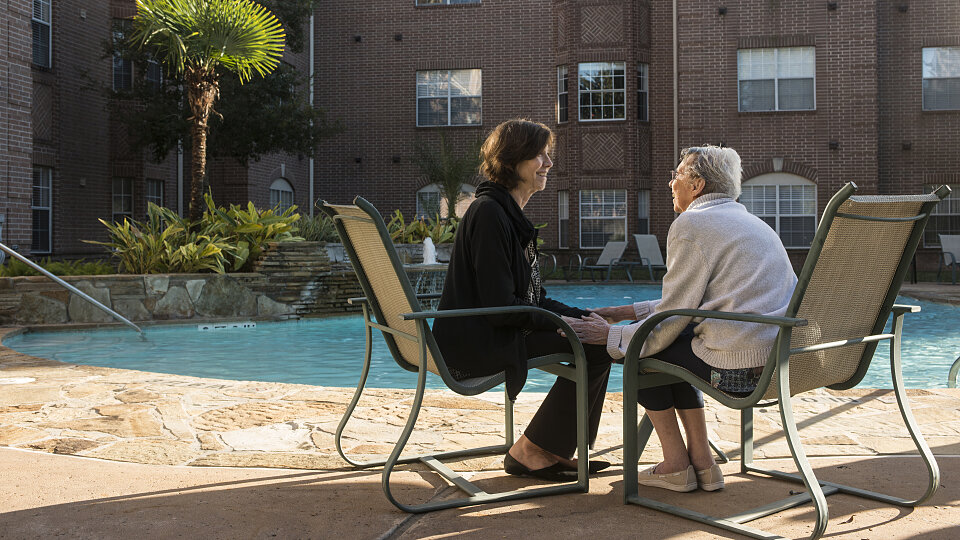Coping strategies for caregivers of senior adults
Caring for a senior adult with dementia can be a stressful job. It can be challenging to deal with the changes in behavior and cognitive skills and witness someone lose their grip on themselves. Caregivers are prone to physically, emotionally and mentally burning out from their duties. Seeking senior respite care to help manage the effects of burnout can be one of many important coping strategies for caregivers.
Recognizing burnout in a caregiver of a dementia patient
Burnout is a condition characterized by emotional exhaustion, cynicism and feelings of detachment from work. These symptoms can lead to physical and mental health problems if left untreated.
If you are experiencing any of the following signs of burnout, it is essential to take steps to manage your stress:
- Feeling overwhelmed or stressed
- Having little energy or feeling constantly tired
- Feeling negative or pessimistic about your situation
- Struggling to focus or having trouble completing tasks
- Experiencing physical symptoms such as headaches, muscle tension, chest pain and stomach problems
- Withdrawing from friends and activities you enjoy
- Feeling hopeless, helpless or trapped
Taking note of your signs of burnout is vital to your health. The sooner you notice symptoms of caregiver fatigue, the sooner you can take steps to try and ease your stress.
Coping strategies for caregivers of senior adults
You can do many things to cope with the stress brought by being a caregiver. Try incorporating some of these stress management techniques into your routine:
- Get regular exercise – Physical activity releases endorphins, which have mood-boosting effects.
- Make time for yourself – Dedicate at least 30 minutes each day to do something you enjoy without stress or obligations.
- Connect with others – Talk to friends and family about your experiences as a caregiver or seek out support groups for caregivers.
- Seek professional help – If the stress proves too much to handle on your own, speak with a therapist or counselor who can help you manage your stress.
- Take breaks – If you feel overwhelmed, take a few minutes to step away from your duties and relax.
- Practice relaxation techniques – Yoga, meditation and deep breathing can help you calm down and de-stress.
- Share the load – Find out if family, friends or other services in the community can provide some support.
The best way to cope with caregiver fatigue is to find what works best for you and stick to it. Finding the best strategies for you may take some time, but it is worth it to maintain your health and well-being.
When to find respite care for elderly people
When it comes to finding respite care services for elderly people, it is important to take timing into account. Respite care can be a valuable resource for caregivers in times of stress and burnout, but knowing when to seek this type of care is essential for success.
Generally speaking, respite care should be sought out when a caregiver is close to feeling overwhelmed or too exhausted to continue. Respite care can help with daily tasks such as bathing, dressing, grooming, administering medications and providing meaningful activities for the senior adult in your life.
If you are caring for a senior adult with dementia and experiencing caregiver fatigue, there is no shame in asking for help. Buckner Retirement Services provides professional caregiving at several senior living communities in Texas.




Add a Comment